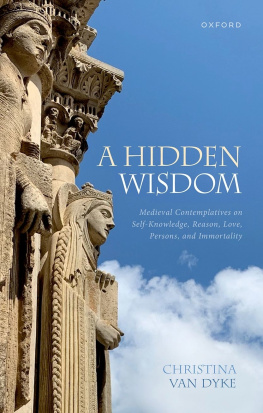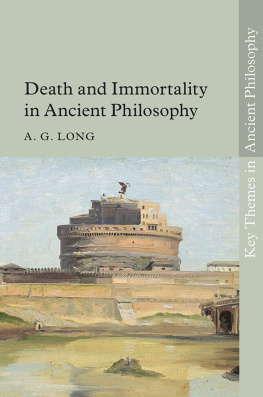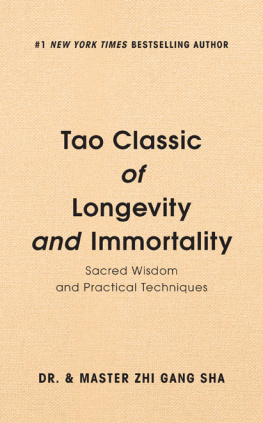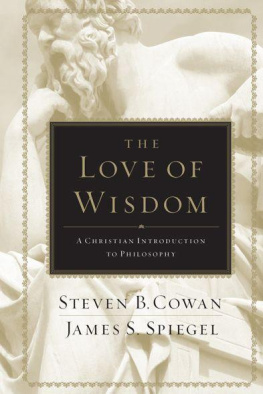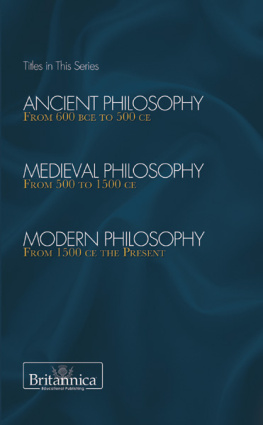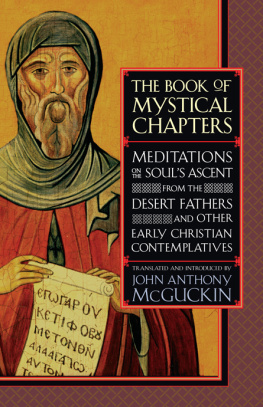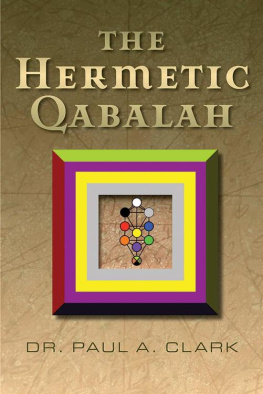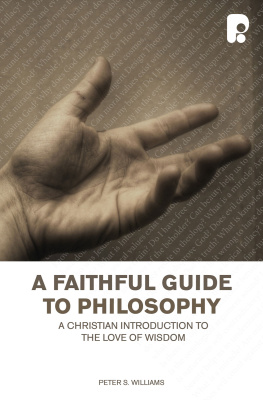A Hidden Wisdom

Great Clarendon Street, Oxford, OX2 6DP, United Kingdom
Oxford University Press is a department of the University of Oxford. It furthers the Universitys objective of excellence in research, scholarship, and education by publishing worldwide. Oxford is a registered trade mark of Oxford University Press in the UK and in certain other countries
Christina Van Dyke 2022
The moral rights of the author have been asserted
First Edition published in 2022
Impression: 1
All rights reserved. No part of this publication may be reproduced, stored in a retrieval system, or transmitted, in any form or by any means, without the prior permission in writing of Oxford University Press, or as expressly permitted by law, by licence or under terms agreed with the appropriate reprographics rights organization. Enquiries concerning reproduction outside the scope of the above should be sent to the Rights Department, Oxford University Press, at the address above
You must not circulate this work in any other form and you must impose this same condition on any acquirer
Published in the United States of America by Oxford University Press
198 Madison Avenue, New York, NY 10016, United States of America
British Library Cataloguing in Publication Data
Data available
Library of Congress Control Number: 2022942370
DOI: 10.1093/oso/9780198861683.001.0001
ebook ISBN 9780192606167
Printed and bound in the UK by
Clays Ltd, Elcograf S.p.A.
Links to third party websites are provided by Oxford in good faith and for information only. Oxford disclaims any responsibility for the materials contained in any third party website referenced in this work.
For Bob Pasnau,
my philosophical older brother, without whose prodding
(Surely you can write something about medieval mysticism!)
this book would never have begun, and
for David,
my favorite and only child, without whose prodding
(Seriously Mom, how have you not sent that off yet?)
this book might never have been finished.
Contents
This book has been a long time in the researching and writing, and Ive worked up quite a debt of gratitude in the process. If I should have included you and have somehow forgotten, Im terribly sorry. I encourage you to tell all your friends to read this book so that they can see what you were a part of, and I promise that Ill start my acknowledgments list earlier in the process of my next book. First credit goes, as promised, to the person who helped me come up with a title that evokes exactly what I was hoping for, while also providing the perfect hook for the grocery list of topics that make up the subtitle: Robin Dembroff, thank you! When the pandemic is over and/or were both in the same place at the same time again, dinners on me.
I also need to thank Bob Pasnaunot just for originally assigning me the chapter on mysticism in The Cambridge History of Medieval Philosophy but for cheering me on ever since then as Ive delved further and further into the medieval contemplative tradition, and especially for providing me with a full set of very helpful comments on the entire manuscript. Ursula Renz also played a crucial role in this books history, although Im sure she doesnt know it; I had already gone back to writing about Thomas Aquinas when she invited me to write a chapter on self-knowledge in medieval mystics for an Oxford Philosophical Concepts volume she was editing, and it was that essay that made me realize that I needed to keep going with the contemplativesI remain deeply grateful for that invitation and her encouragement of what I wrote. It is Christia Mercer, however, who can take direct credit for my actually writing this book. Not only did she tell me that I had a book in the making already in February 2016, but she then kept inviting me to give talks on relevant topics at workshops at her Center for New Narratives in the History of Philosophy at Columbia University. Those workshops introduced me to both people and ideas that have expanded and deepened my understanding of medieval mysticism and contemplativism in fantabulous waysIm sure I havent done them full justice here, but special thanks in particular go to Katie Bugyis, Holly Flora, and Lauren Mancia for being kick-ass theologians, art historians, and historians willing to hang out with this analytically trained philosopher.
Speaking of people who have worked to create vibrant communities of scholars with cross-disciplinary interests, many thanks also to Mike Rea and the crew of his Logos conferences. The Logos conferences may be a thing of the past, but their impact remains, and I appreciate being made to feel part of a group (viz., philosophers of religion and analytic theologians) Id long felt on the outside of. Thanks also to Scott MacDonald for continuing to hold the Cornell Medieval Colloquia each year, even now that theyre actually happening in Brooklyn (and, in 20202022, online). The chance to connect and reconnect there with stellar scholars and friends like Susan Brower-Toland, Peter King, Scott Williams, and Thomas Williams has made both my work and my life better in myriad ways I find it hard to quantify. I am also endlessly grateful to Thomas Williams for reading this entire manuscript and providing me with not only a host of useful comments but several much-needed laughs (These people need to be beaten with a Jesus-stick) and any number of pep talks. I look forward to finding out with you exactly what level of snark is allowed in heaven.
General thanks go to Elizabeth Barnes and Ross Cameron for their relentless support and encouragement; to Sara Bernstein for such good advice about so many things and always having my back; to Molly BrownStar to my Barb and mother of my godpuppy Elodie (whose adorableness kept me going during the darkest part of the pandemic); to Amber Griffioen and Lacey Hudspeth for encouragement, support, and a place to vent about the mysticism haters; to Amy Seymour, Julia Staffel, and Natalie Hart for being my writing partners at coffee shops in NYC, Boulder, and Grand Rapids; and to Laurie Paul for making me feel like it was obvious that I was going to write an amazing book and that the only real question was how to make sure the right people read it. A most particular thank you to Keshav Singh for making me the cootie-catcher that decided which versions of the names of medieval figures I was going to use in this book when I was going bananas trying to decide between things like Johannes and John, of Oingt or dOingt. The result may be a bit idiosyncratic, but it is at least consistent throughout. Many thanks as well to Peter Momtchiloff, who has been wonderfully encouraging of this project and who sent me a few crucial email nudges at just the right moment in the fall of 2021.
Its hard to know exactly what sort of gratitude I owe to Calvin College (now University). On the one hand, both the college and my department provided me with deeply appreciated support and encouragement when I was a full-time single parent and an assistant (and then tenured and then full) professor; on the other hand, after several truly stressful years, in 2020 continued budgetary shortfalls led the university to cut a number of tenured positions, including mine, and Id be lying if I said that I missed being there. I do miss what Calvin used to be, however, and I have a deep appreciation not only for the mission it now seems to have lost but for the people Ive been fortunate enough to have shared a department with there, particularly Lindsay Brainard, Terence Cuneo, Rebecca Konyndyk DeYoung, Ruth Groenhout (the next-door office mate than which none greater could be conceived), Matt Halteman (with only one n!), Lee Hardy, Al Plantinga (who spent several victory lap years there after retiring from Notre Dame), Del Ratzsch, and Kevin Timpe. The tireless work of first Donna Kruithof and then Laura McMullen and Corrie Bakker kept me (relatively) organized and (mostly) in the right places at the right times, and I cant thank them enough for that. I am also deeply grateful to the students who have passed through my life over the twenty years I spent as a faculty member at Calvin, many of whom I now count as friends. You taught me that the most effective way to communicate the importance and value of philosophy is to live what you say you believe, and I am the better for it.

